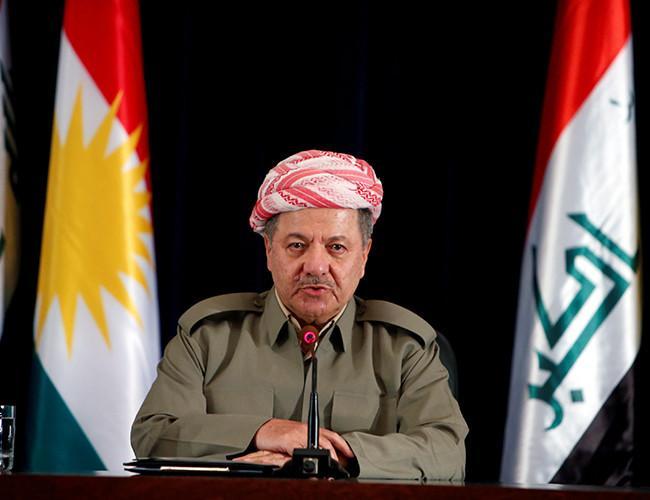Barzani says he will step down as Iraqi Kurdish leader
ARBIL

The Iraqi Kurdistan Regional Government (KRG) leader Masoud Barzani told a closed-door session of parliament on Oct. 29 he was stepping down amid the fall-out from a controversial independence referendum.
“After Nov. 1, I will no longer exercise my functions, and I reject any extension of my mandate,” the 71-year-old said in a letter read out to parliament in the KRG capital Arbil, a copy of which was obtained by AFP.
“Changing the law on the presidency of Kurdistan or prolonging the presidential term is not acceptable,” said the architect of the Sept. 25 independence vote, which led to the Kurds losing to Baghdad’s forces disputed territory to which they laid claim.
“I ask parliament to meet to fill the vacancy in power, to fulfil the mission and to assume the powers of the presidency of Kurdistan”, said the letter.
Barzani also said he would continue to “remain a peshmerga among the ranks of the people of Kurdistan and defend the achievements of the people of Kurdistan.”
The parliamentary session was held behind closed doors because of “sensitive questions” that would be discussed, deputies said earlier.
Officials from Barzani’s Kurdistan Democratic Party (KDP) had told journalists ahead of the session that the letter to be read out would announce he was stepping aside.
On Oct. 28, a KRG official told Reuters that Barzani will not extend his presidential term beyond Nov.1.
A plan to divide up the president’s powers was outlined in a letter Barzani sent to the Kurdish parliament on Oct. 28, the official said. The plan asks parliament to distribute the president’s powers among the government, parliament and judiciary.
Barzani’s current term was set to expire in four days, the same date that presidential and parliamentary elections were due to be held. However, those elections were delayed indefinitely last week, amidst an escalating regional crisis.
Commenting on the recent reports, Turkish Foreign Minister Mevlüt Çavuşoğlu said that “we haven’t seen anything concrete.”
Last month’s independence referendum sparked a crisis between the KRG and central Iraqi authorities.
Iraqi forces launched an offensive to take the multi-ethnic city of Kirkuk, which lies outside the KRG’s official boundaries, back and managed to do so without much resistance on Oct. 16.
The incident was a major symbolic and financial blow to the Kurdish drive for independence championed by Barzani, since it halved the region’s oil export revenue.
Iraqi forces and the peshmerga started a second round of talks yesterday to resolve a conflict over control of the KRG’s border crossings, Iraqi state TV said.
Iraqi Prime Minister Haider al-Abadi on Oct. 27 ordered a 24-hour suspension of military operations against Kurdish forces in northern Iraq. The two sides held a first round of talks on Oct. 27 and 28.
Abadi said the talks are meant to prepare for the peaceful deployment of Iraqi troops at the border crossings with Turkey, Iran and Syria in Iraq’s Kurdistan region.
“The second round of talks about deploying federal troops in the disputed areas has started,” State TV said, giving no further details.
Abadi wants to take control of the disputed areas and the border crossings, including one in the Fish-Khabur area through which an oil export pipeline crosses into Turkey, carrying Iraqi and Kurdish crude oil.
The KRG on Oct. 25 proposed an immediate ceasefire, a suspension of the referendum result and “starting an open dialogue with the federal government based on the Iraqi constitution” - a call rejected by Baghdad.
Abadi demanded on Oct. 26 that the Kurds declare their referendum void, rejecting the KRG offer to suspend its independence push to resolve a crisis through talks. “We won’t accept anything but its cancellation and the respect of the constitution,” he said in a statement during a visit to Tehran.
Barzani was born in 1946, soon after his legendary father, Mulla Mustafa, founded a party to fight for the rights of Iraq’s Kurds. After decades spent fighting with the peshmerga, Barzani became a central figure in the drive to create an autonomous Kurdish state in northern Iraq, after Saddam Hussein was toppled in the U.S.-led invasion of Iraq in 2003.
















